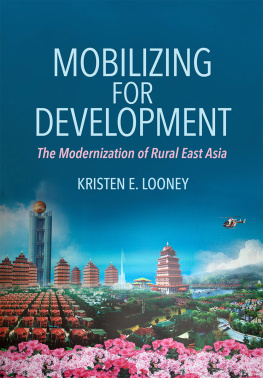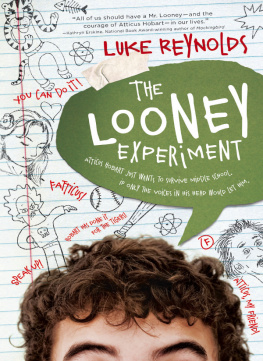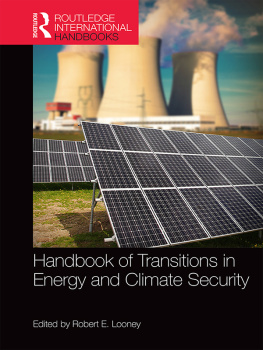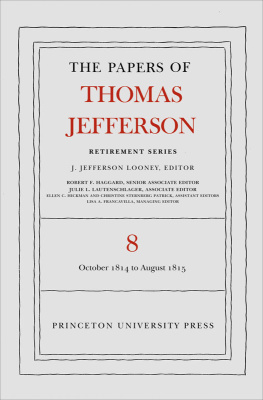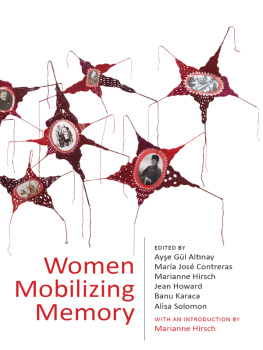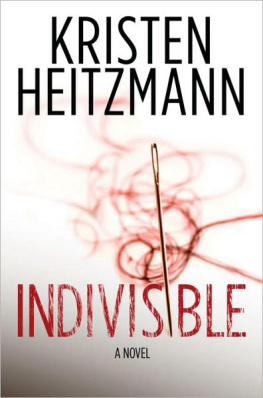Kristen E. Looney - Mobilizing for Development
Here you can read online Kristen E. Looney - Mobilizing for Development full text of the book (entire story) in english for free. Download pdf and epub, get meaning, cover and reviews about this ebook. year: 2019, publisher: Cornell University Press, genre: Politics. Description of the work, (preface) as well as reviews are available. Best literature library LitArk.com created for fans of good reading and offers a wide selection of genres:
Romance novel
Science fiction
Adventure
Detective
Science
History
Home and family
Prose
Art
Politics
Computer
Non-fiction
Religion
Business
Children
Humor
Choose a favorite category and find really read worthwhile books. Enjoy immersion in the world of imagination, feel the emotions of the characters or learn something new for yourself, make an fascinating discovery.
- Book:Mobilizing for Development
- Author:
- Publisher:Cornell University Press
- Genre:
- Year:2019
- Rating:5 / 5
- Favourites:Add to favourites
- Your mark:
- 100
- 1
- 2
- 3
- 4
- 5
Mobilizing for Development: summary, description and annotation
We offer to read an annotation, description, summary or preface (depends on what the author of the book "Mobilizing for Development" wrote himself). If you haven't found the necessary information about the book — write in the comments, we will try to find it.
Mobilizing for Development — read online for free the complete book (whole text) full work
Below is the text of the book, divided by pages. System saving the place of the last page read, allows you to conveniently read the book "Mobilizing for Development" online for free, without having to search again every time where you left off. Put a bookmark, and you can go to the page where you finished reading at any time.
Font size:
Interval:
Bookmark:
ARDP Accelerated Rural Development Program (Taiwan)
DRC Development Research Center of the State Council (China)
FA Farmers Association (Taiwan)
FPC Farmers Professional Cooperative (China)
JCRR Sino-American Joint Commission on Rural Reconstruction
NACF National Agricultural Cooperative Federation (South Korea)
NRA nominal rate of assistance to agriculture
ORD Office of Rural Development (South Korea)
PAC primary agricultural cooperative (South Korea)
P.L. 480 Public Law 480 Food for Peace Program
RRA relative rate of assistance to agriculture
SAIC State Administration for Industry and Commerce (China)
SAU small agricultural unit (Taiwan)
SLTI National Saemaul Leadership Training Institute (South Korea)
TVE township and village enterprise (China)
There are many people who made this book possible. First, I want to thank my advisers from the Harvard University Department of Government. Words cannot express how fortunate I feel to have studied Chinese politics with Elizabeth Perry and Roderick MacFarquhar. I never would have undertaken a comparative, multicountry study without Lizs initial encouragement and steadfast support. She helped me at every stage, generously offering her time, knowledge, and insights about the profession. She also opened several doors for me in China, where I was able to see firsthand just how much she has done to advance the field and assist both young and established scholars there. Rod was a similarly fantastic mentor. He taught me almost everything I know about the Maoist period and elite politics. But more than that, he pushed me to read as much as possible in Chinese and to seriously engage with the work of Chinese scholars. Sadly, he passed away as I was completing the final edits for this book. I can only hope it would have made him proud. Timothy Colton introduced me to the classic works in comparative politics and inspired me to think about China from a broader perspective. Even so, he once half-jokingly remarked that a three-country study would take me forevera prediction that has felt pretty accurate over the years but is thankfully no longer true. Katharine Moon of Wellesley College, besides helping me to understand Korea better, has been a constant source of support since my undergraduate years when I started down this path.
I would additionally like to thank Robert Bates, Peter Hall, Nancy Hearst, Sebastian Heilmann, Nahomi Ichino, Iain Johnston, Kyung-ok Joo, Mi-hyun Kim, Steven Levitsky, Sang-suk Oh, Anthony Saich, and Andrew Walder for providing excellent instruction and advice during my graduate studies. I am also indebted to my former teachers from Wellesley who first kindled my interest in Chinese studies, including Dai Chen, Karl Gerth, Pat Giersch, Ann Huss, William Joseph, Ruby Lam, Sherry Mou, and Weina Zhao. Bill and Sherry especially influenced me to become a lifelong student of China and East Asia. Yawei Liu at the Carter Center also taught me a great deal about China during an internship there.
At various stages of this projectfrom half-baked ideas to early drafts, conference papers, and revised chaptersI benefited from comments by Joel Andreas, Jennifer Bachner, Harley Balzer, Richard Doner, Benjamin Goodrich, Kyle Jaros, Diana Kapiszewski, Christine Kim, James Kai-sing Kung, Didi Kuo, Wendy Leutert, Janet Lewis, Claire Schwartz Litwin, Elena Llaudet, Daniel Mattingly, Andrew Mertha, Sara Newland, Abraham Newman, Jean Oi, Benjamin Read, Maria Repnikova, Christopher Rhodes, Meg Rithmire, Jordan Sand, Sarah Shehabuddin, Graeme Smith, Dorothy Solinger, Rachel Stern, Patricia Thornton, James Vreeland, Jeremy Wallace, Xiaojun Yan, David Zweig, and the members of the George Washington University Comparative Politics Workshop. I am grateful to Rick, Andy, Ben, and Meg in particular for traveling to DC in order to participate in my book workshop, which was supported by the Georgetown University Department of Government. I must also thank my Georgetown colleagues Victor Cha, David Edelstein, Eileen Fenrich, Michael Green, Diana Kim, Charles King, Robert Lyons, Kathleen McNamara, Daniel Nexon, Irfan Nooruddin, Carole Sargent, Yuhki Tajima, Charles Udomsaph, and Ding Ye, among many others, for the extra time and support I needed to see this project through to completion. Several Georgetown students provided valuable research assistance: Jayme Amann, Brian Bumpas, Sungmin Cho, Thomas Christiansen, Minjung Kang, Jonathon Marek, Andrea Moneton, Stefan Rajiyah, Ying Sun, and Mengjia Wan. Sungmin, most of all, went above and beyond to help me understand the contemporary Korean-language scholarship on the New Village Movement. I would furthermore like to express my sincere thanks to Roger Haydon, Mary Kate Murphy, and their colleagues at Cornell University Press, as well as Glenn Novak, Kate Mertes, and two anonymous reviewers whose comments significantly improved the manuscript.
A number of institutions and granting agencies facilitated my research in Asia, including the Center for Asia-Pacific Area Studies at Academia Sinica in Taipei; the Inter-University Program for Chinese Language Studies at Tsinghua University in Beijing; the Rural Development Institute at the Chinese Academy of Social Sciences in Beijing; the Korean Language Institute and the Department of Political Science at Yonsei University in Seoul; the Blakemore Foundation; the Chiang Ching-kuo Foundation for International Scholarly Exchange; the Edmund A. Walsh School of Foreign Service at Georgetown University; the Foreign Language and Areas Studies Fellowships Program; and the Fulbright-Hays Doctoral Dissertation Research Abroad Fellowship Program. Research for this book was also conducted at the Asian Reading Room of the Library of Congress in Washington, DC; the C. V. Starr East Asian Library at Columbia University in New York; and the University Services Center for China Studies at the Chinese University of Hong Kong.
I owe a debt of gratitude to many people at each of these institutions but want to give a special thanks to those who welcomed and hosted me as a visiting researcher: Professors Hsin-huang Michael Hsiao and Cheng-yi Lin at Academia Sinica; Professor Chung-in Moon at Yonsei; and Professors Yu Jianrong, Li Renqing, and Lu Lei at the Chinese Academy of Social Sciences. In Korea, I received help and guidance from Do-hyun Han, Seung-mi Han, Joon-kyung Kim, Junmin Kim, Seung-hyun Kim, Lucy Sojung Lee, Peter Joon-sung Park, Hyeon-suk Shin, Min-young Shin, and Wonwoo Yi. In China, I was greatly helped by Li Chang-ping, Li Shuishan, Qian Qian, Song Junling, Tan Yifei, Weng Ming, Xiao Yalin, Zhao Shukai, Zhou Yi, Zou Yongxiong, and especially Ren Jianghua. I owe my positive fieldwork experience in Jiangxi to Ouyang Qiaowen, Wen Xiaomin, Yang Jingwei, Zeng Xinfang, and many others affiliated with the Ganzhou Rural Work Department and the county governments of Anyuan, Longnan, Ruijin, Shicheng, and Xingguo. Additional trips to Dazhai (thanks to Yu Jianrong), Huaxi (thanks to Zhou Yi), and Qing County, Hebei, further enriched my understanding of the Chinese countryside. I am also deeply appreciative of my friendships with Dai Shuping, Guo Yingtao, Li Shumei, Li Yi, Liu Xiaoxia, Su Dan, Su Jianjing, Yi Benyao, and Zhang Guoliang. They have supported me in immeasurable ways over the years, especially Shuping.
My friends and family have also shared their love and unwavering confidence in my ability to finish this book. I cannot possibly thank all of them, although I would like to recognize Heather Brent, Karen Colin, Joshua Friess, Jana Kiser, April Kuehnhoff, Laura Murray, Katharine Poundstone, Johnnetta Russell, Amber Samuel, Paulraj Samuel, Yael Sherman, Andrew Silverman, Cena Maxfield Smith, Van Smith, Philip Tinari, Mabel Tso, Marisa Van Saanen, Peggy Wang, Mary Ellen Wiggins, and Misti Yang for helping me to keep things in perspective. Meg Rithmire was my friend long before she became my colleague and has been there every step of the way. My incredible parents, Craig and Katherine Looney, have supported all of my choices, and my sisters, Meghan Rubiano and Shannon Looney, have always been there to lend an ear. Along with my grandparents, Jack and Jimmie Looney and Alonzo and Patricia Poll, and my in-laws, Aaron and Cathy Rappeport, they have been my biggest cheerleaders. My husband, Alan Rappeport, has been part of this book from the beginning. I will forever be grateful to him and our little ones, Talia and Buster, for reminding me of what is important.
Font size:
Interval:
Bookmark:
Similar books «Mobilizing for Development»
Look at similar books to Mobilizing for Development. We have selected literature similar in name and meaning in the hope of providing readers with more options to find new, interesting, not yet read works.
Discussion, reviews of the book Mobilizing for Development and just readers' own opinions. Leave your comments, write what you think about the work, its meaning or the main characters. Specify what exactly you liked and what you didn't like, and why you think so.

